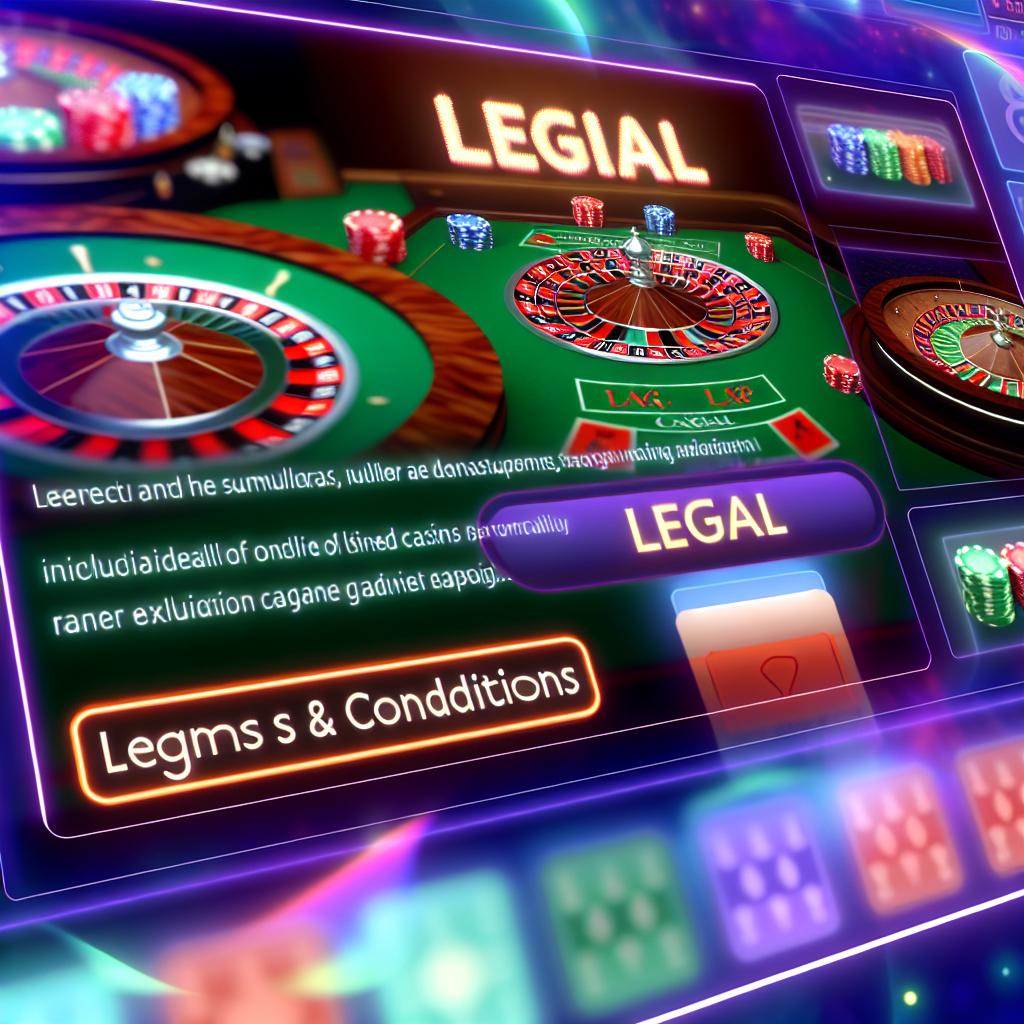
Understanding the legality of online casinos is a nuanced topic that can be complicated by varying laws and regulations across different regions. This document aims to provide an expanded overview of how legality is determined, as well as the factors influencing these decisions. The online casino industry is subject to distinct legal guidelines in different parts of the world, which can significantly influence how these entities operate.
The legal framework for online casinos is predominantly established at the jurisdictional level. This means that every country and, in some cases, each state or province within a country, formulates its own set of legal statutes concerning gambling activities. The regulations that govern online casinos can vary widely, ranging from transparent and well-defined rules to more vague and ambiguous standards.
In several countries, such as the United Kingdom and Malta, online casinos are not only legal but also subject to comprehensive regulation by authoritative bodies. The UK Gambling Commission in the United Kingdom and the Malta Gaming Authority in Malta are prime examples of governmental organizations that supervise and ensure the legality and fairness of online gambling platforms. These entities impose stringent regulations that casinos must adhere to, which include but are not limited to:
Licensing and Registration: Online casinos must apply for and obtain official licenses from regulatory bodies, ensuring they operate within the legal framework.
Fair Play and Transparency: Casinos are required to display fairness in their operations, including the randomness of their games and transparency in financial transactions.
Consumer Protection: These regulatory bodies protect consumer interests by enforcing measures that safeguard user data and promote responsible gambling.
Opposite to regions with clear regulations are those areas with stringent restrictions on online gambling, such as certain jurisdictions within the United States. The American legal landscape presents a unique case because the legality of online casinos varies from state to state. While states like New Jersey and Pennsylvania have legalized online gambling and implemented regulatory frameworks to govern it, others may enforce prohibitive laws or maintain uncertain legal positions.
In this context, the legality of online casinos is shaped by each state’s authority, which defines the parameters within which these entities can operate. This results in a patchwork of regulations that can be challenging to navigate without a comprehensive understanding of individual state laws.
Several key factors contribute to determining the legality of online casinos across different regions:
Regulatory Compliance: Jurisdictions with established legal systems typically require online casinos to obtain necessary licenses and comply with specific operational standards. Meeting these regulatory requirements is paramount for casinos wishing to operate lawfully.
Economic Considerations: In regions where online casinos are embraced, there are often significant economic incentives driving this acceptance. Online casinos have the potential to contribute to economic growth by creating jobs, generating tourism, and increasing tax revenues. As such, these economic benefits often play a critical role in shaping the legal landscape for online gambling.
Social and Cultural Attitudes: The cultural and social perspectives prevailing in a territory can significantly influence gambling legislation. Areas with a cultural acceptance of gambling might be more inclined to establish legal frameworks to regulate these activities, while regions with negative social attitudes toward gambling may impose stricter restrictions or bans.
For individuals considering engaging in online casino activities, it is prudent to thoroughly investigate and understand the legal status of such platforms in their specific region of residence. This due diligence could encompass several actions:
Verify Licensing: Checking whether an online casino holds a valid license is crucial. Many reputable gambling platforms provide accessible information about their licensing and regulatory compliance on their websites.
Consult Legal Resources: Legal advice from professionals acquainted with gambling laws can offer invaluable insights. Additionally, official government websites may provide authoritative guidance regarding the legal status of online casinos in a particular region.
Overall, keeping abreast of the current laws and regulations is an essential aspect of participating in online casino activities. It ensures not only legal compliance but also the enhancement of the individual’s overall gaming experience by building trust and ensuring a secure environment.
Navigating the complex realm of online casino legality involves an extensive understanding of the diverse legal landscapes globally. The key to engaging lawfully in online gambling activities is to stay informed and cognizant of local laws. This awareness not only safeguards individuals from legal ramifications but also contributes to a more rewarding and secure online gaming experience. By continually assessing the regulatory environment and adhering to regional guidelines, online casino enthusiasts can enjoy the thrill of gaming while remaining within legal boundaries.